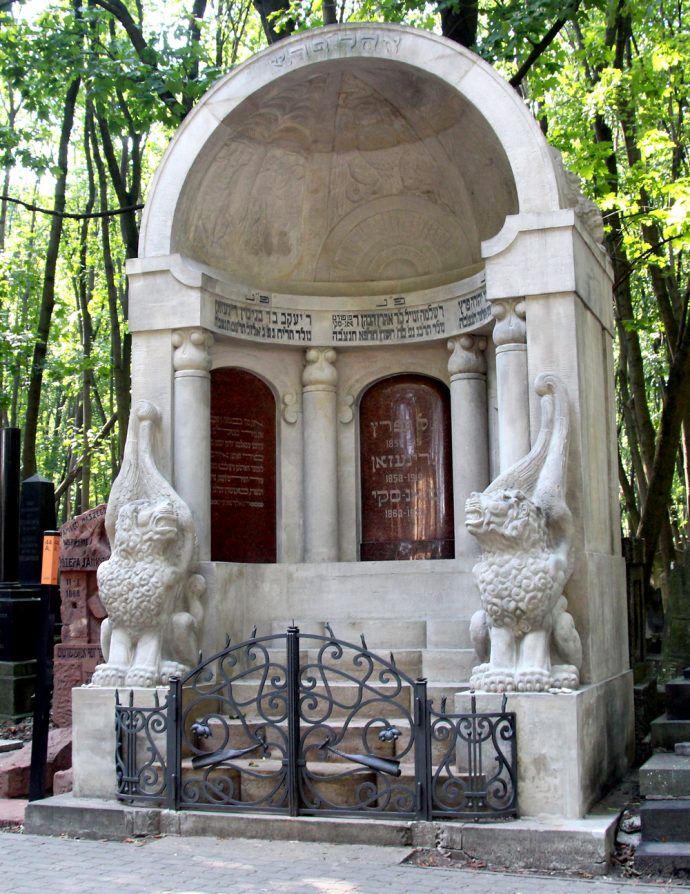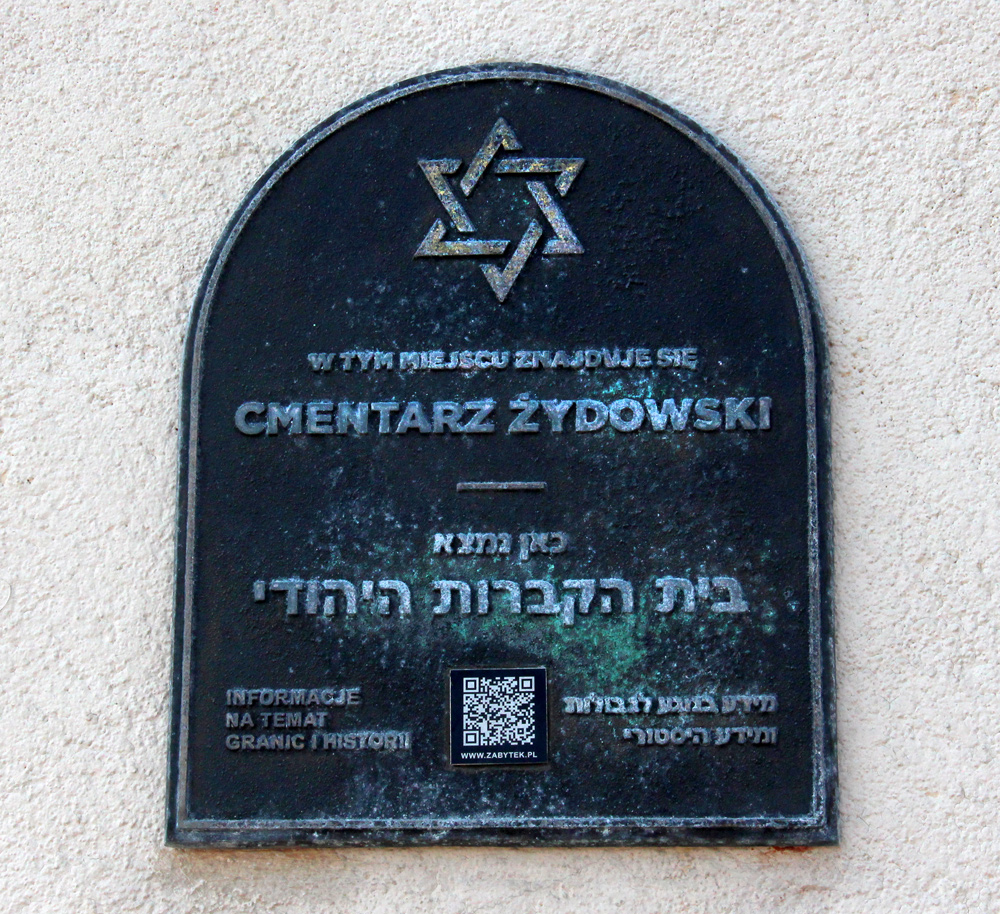
“Żydowski” is the Polish word for Jewish, and this is the plaque that marks the Jewish cemetery on Okapowa Street in Warsaw, Poland. The cemetery, which dates back to the first years of the 19th century, is one of the few places that survived the utter destruction of Warsaw by the Nazis during the Second World War.
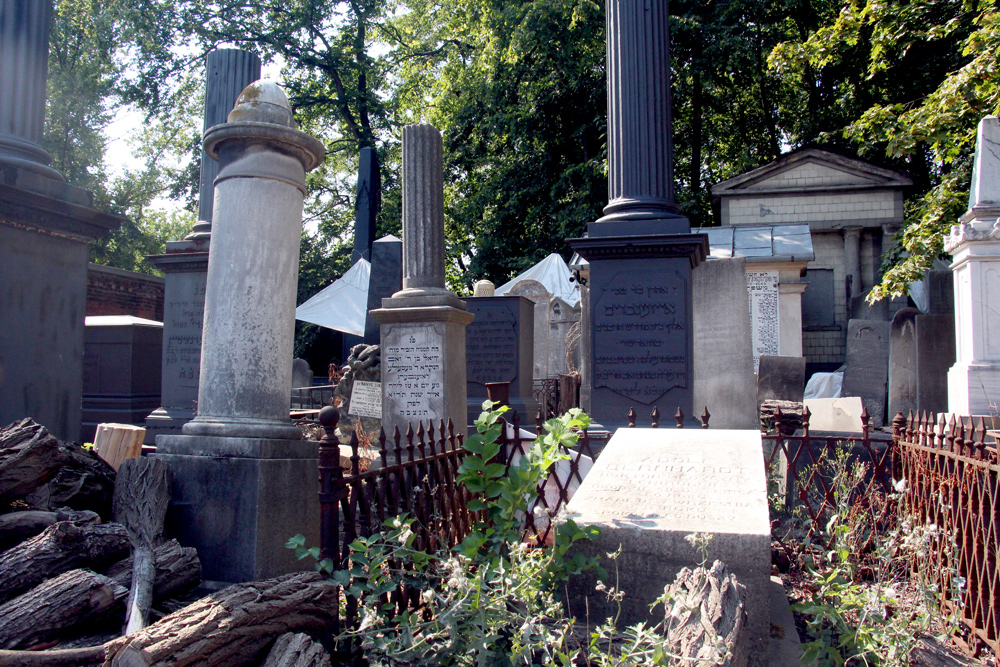
Today, much of the cemetery is overgrown with weeds. The tall, overhanging trees, crumbling walls, leaning granite headstones, and toppled marble monuments, give the graveyard an ancient, disheveled, eerie quality.
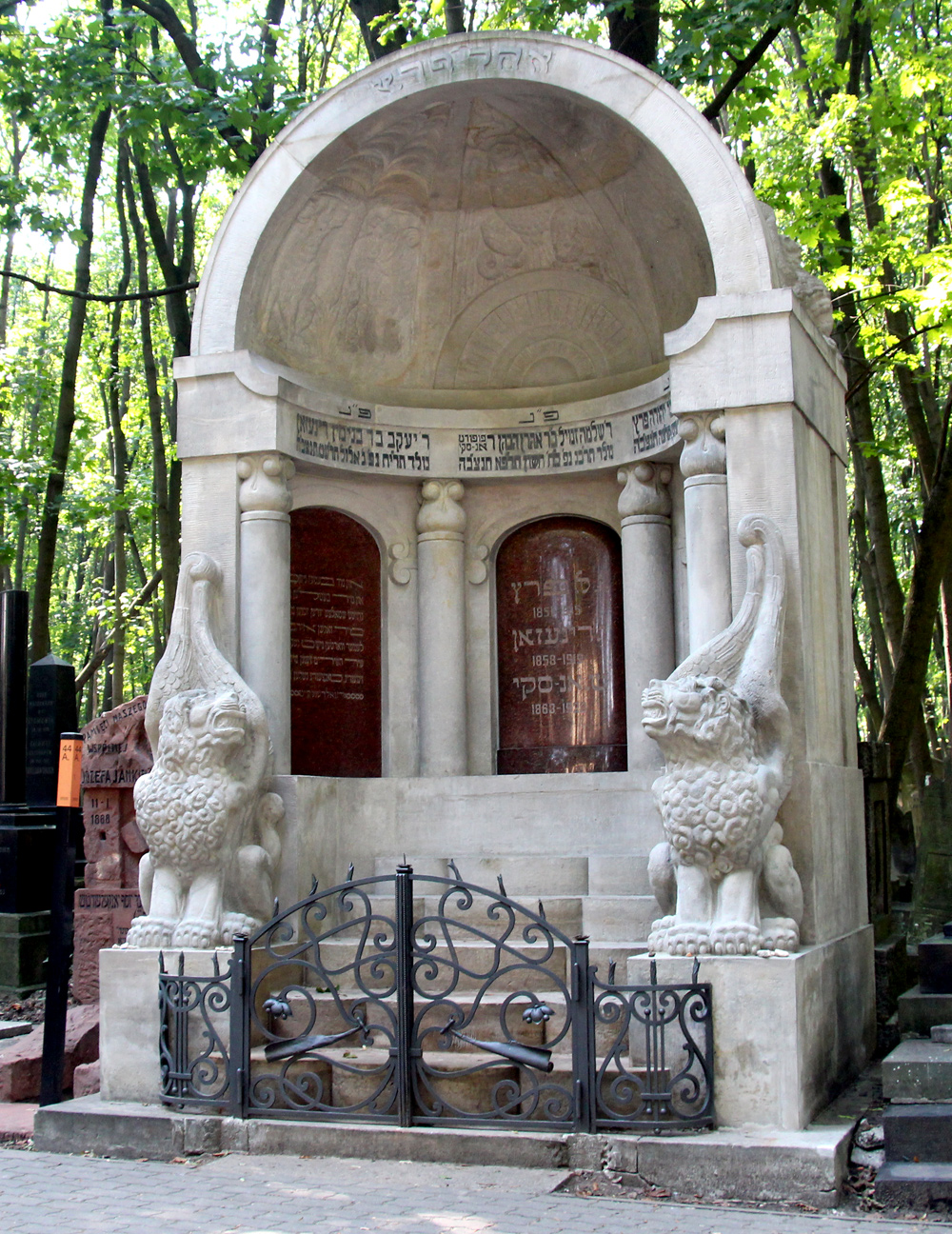
But we are here to visit the grand and well-tended Mausoleum of the Three Writers that honors I. L. Peretz, Jacob Dinezon, and S. An-sky. My family—my sister Robin Evans, her husband Jim, and my longtime companion Carolyn Toben—have joined me on a pilgrimage of sorts. We have traveled from the U.S. to Warsaw to join a small group of people who have gathered here on August 29, 2019, at one o’clock in the afternoon.
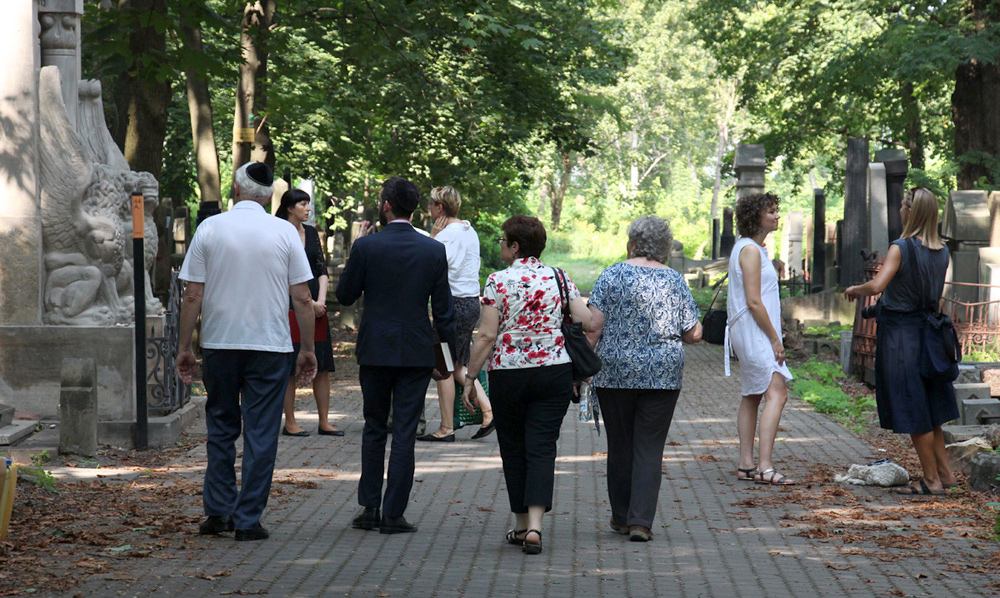
We are here to celebrate the 100th yortsayt (the 100th anniversary of the death) of the Jewish author Jacob Dinezon, whose life and literary career has obsessed me for the past 16 years. Dinezon was, in his day, a famous and beloved Yiddish novelist and community activist. On the day of his funeral in 1919, tens of thousands of Jews lined the streets of Warsaw and packed the cemetery to mourn his passing.
At the time, Jews made up nearly 40 percent of Warsaw’s population, and the city was at the center of Jewish religious and cultural life in Central Europe. One hundred years later, in the aftermath of the Holocaust and the Soviet-dominated years that followed, the Jewish population of Poland was decimated, and only a handful of people show up to pay their respects. Most are from Warsaw’s Emanuel Ringelblum Jewish Historical Institute which is sponsoring the event as part of the Singer’s Warsaw Jewish Culture Festival. Our liaison, the wonderful cultural projects and communication specialist, Magdalena Szyszkowska, has invited some of her colleagues to attend the service. They probably have no idea what a mitzvah they are performing by participating.
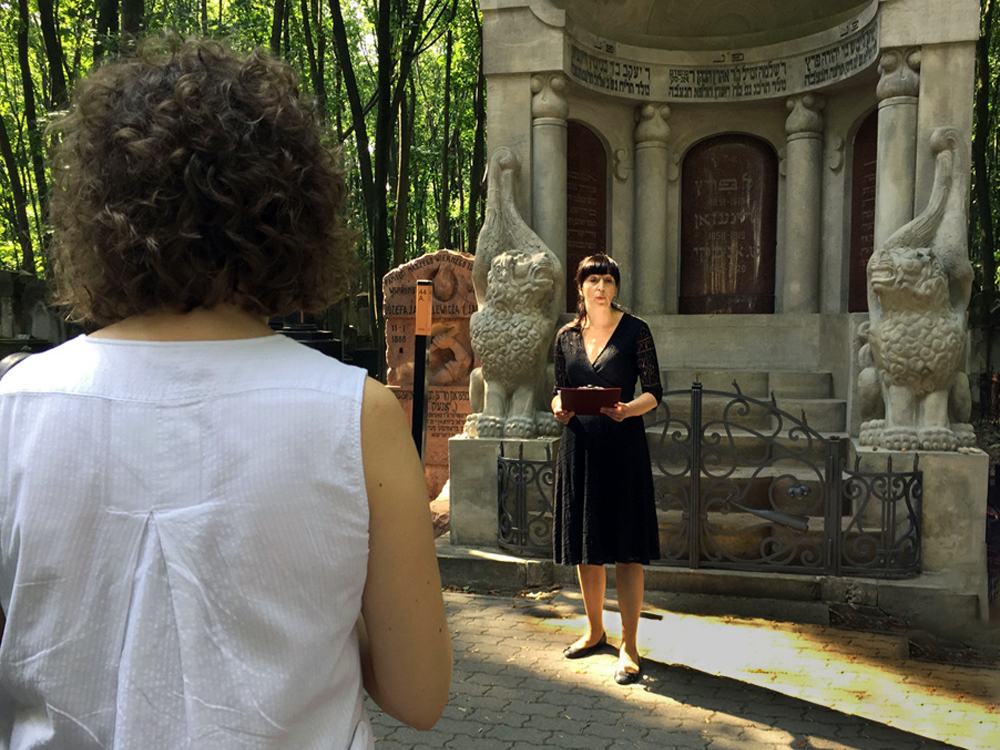
The afternoon is sunny and warm as we stand before the ornate Mausoleum of the Three Writers which was designed by Abraham Ostrzega and constructed in 1925 in honor of Peretz’s 10th yortsayt. The monument is also known as Ohel Peretz, Peretz’s Tomb.
The Yiddish scholar and historian, Dr. Agnieszka Żółkiewska, presides over the memorial service. She summarizes Dinezon’s role in Jewish literature and explains his close relationships with I. L. Peretz, S. An-sky, and the entire literary community of Warsaw.
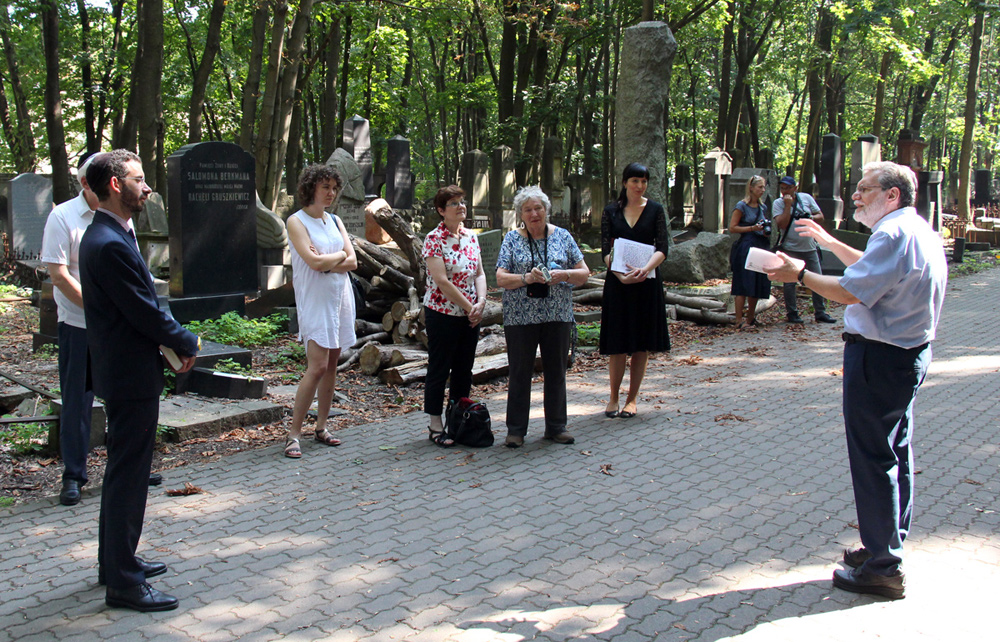
As part of the memorial service, I was invited to speak about Dinezon’s funeral that took place two days after his death one hundred years ago. How the day was overcast and rainy, yet a vast crowd filled the streets to overflowing as Warsaw’s Jewish community grieved the loss of their beloved folk writer and kindhearted benefactor.
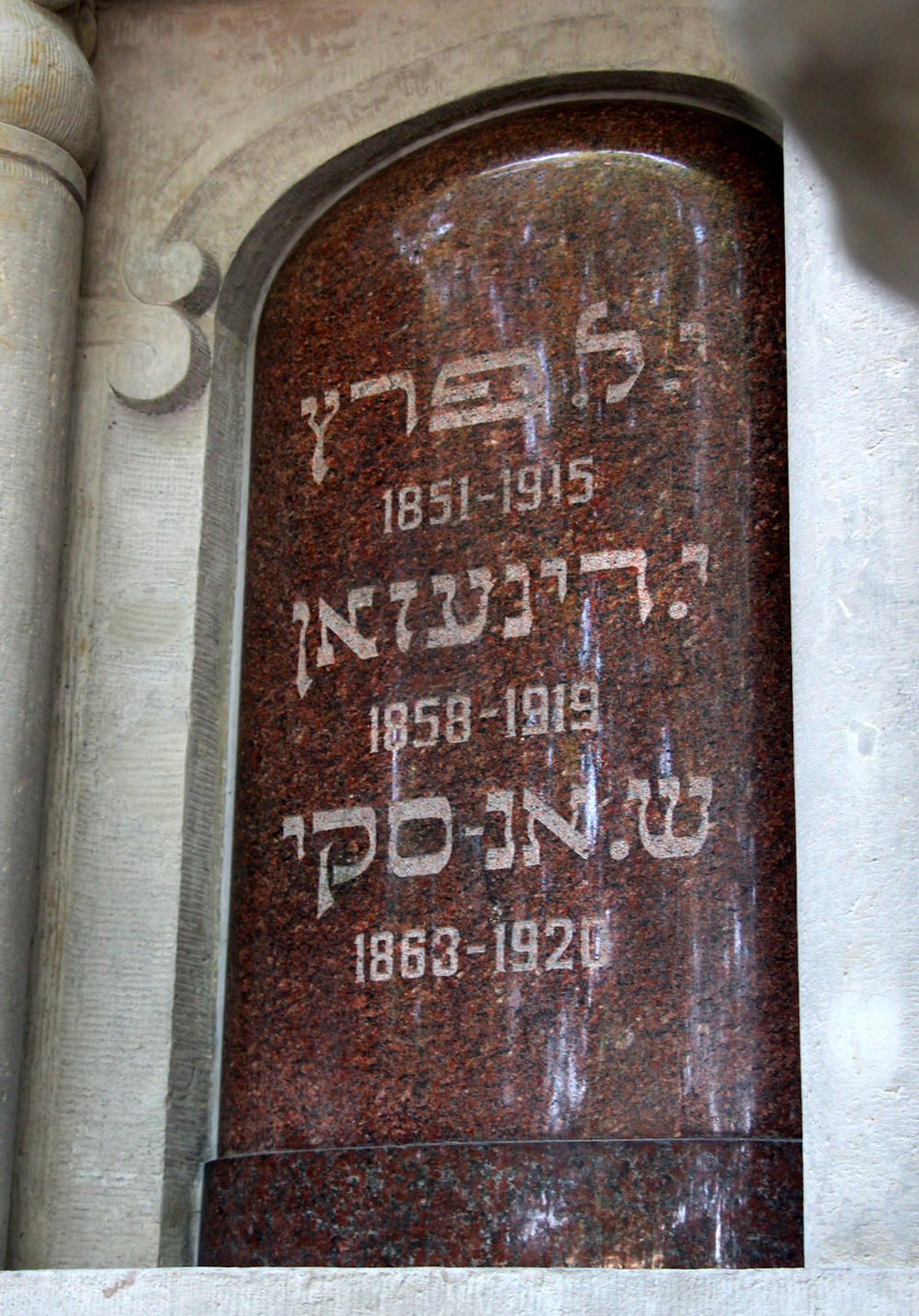
I also talked about “the name in the middle”—how people often wonder about the name etched into the Mausoleum between the more well known Peretz, the great short story writer, and An-sky, the author of the supernatural play, “The Dybbuk.” And why it is so important to remember Dinezon at this time on the occasion of his 100th yortsayt by recalling his significant contributions to the development of modern Yiddish literature, his central role in Warsaw’s literary community, and his tireless efforts to educate and improve the lives of orphaned children during the First World War.
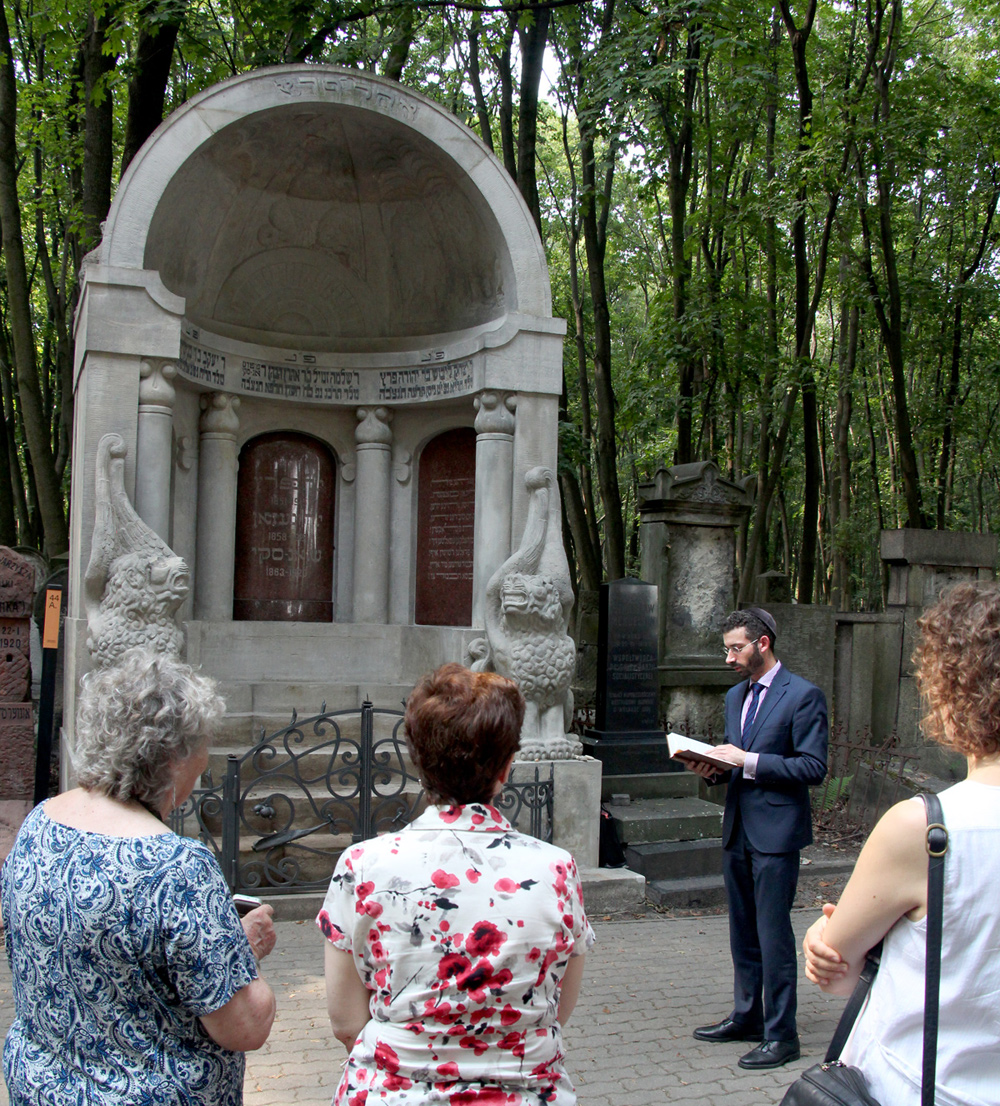
Rabbi Yehoshua Ellis, an American, now serving as a congregational rabbi and religious consultant in Poland, added a poignant and spiritual note with his singing of the El Maleh Rachamim prayer (a prayer of compassion for the departed soul) and the reciting of psalms. Dr. Żółkiewska concluded the ceremony with a moving reading in Yiddish of S. An-sky’s eulogy for Jacob Dinezon delivered on the afternoon of his funeral.
Unlike that dreary, rain-filled day in 1919 when Dinezon was buried here, Warsaw provided us with a bright afternoon to conduct this beautiful and respectful ceremony in honor of Jacob Dinezon’s 100th yortsayt. We are grateful to The Emanuel Ringelblum Jewish Historical Institute and its dedicated staff for the opportunity to remind people, “There was a Jacob Dinezon in the world, and his life and literary career deserve to be remembered.”
